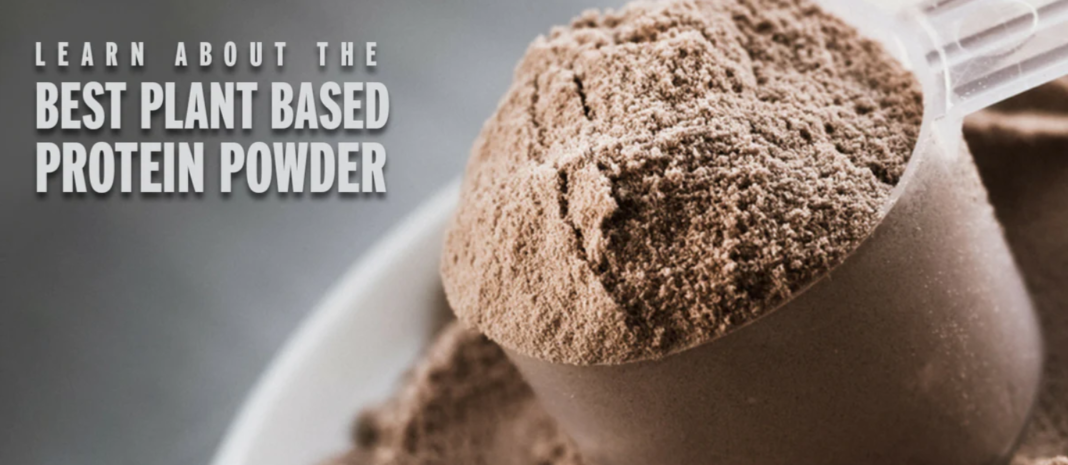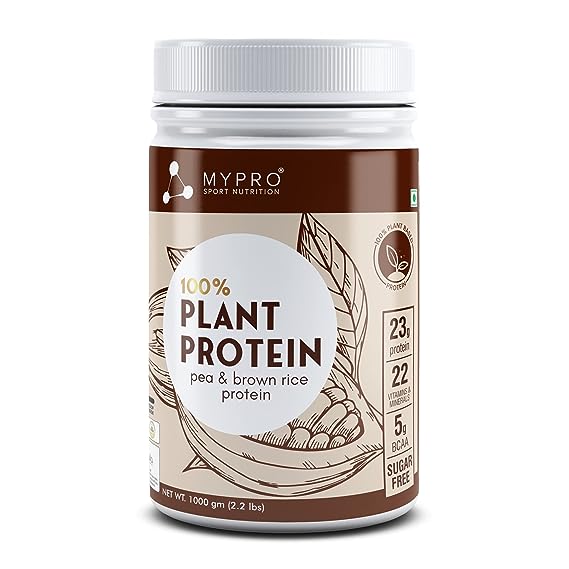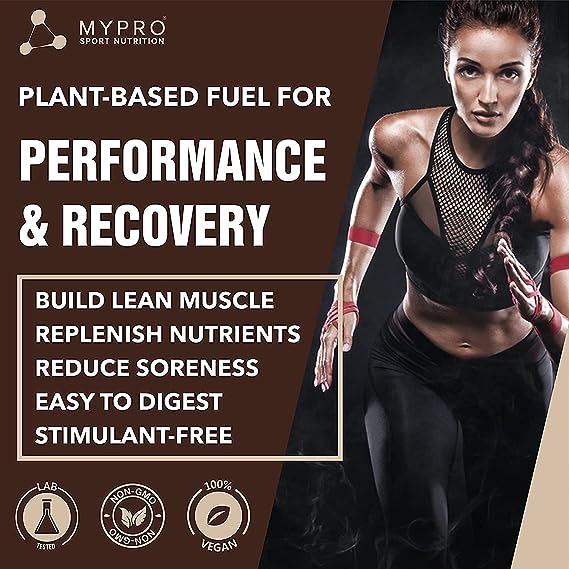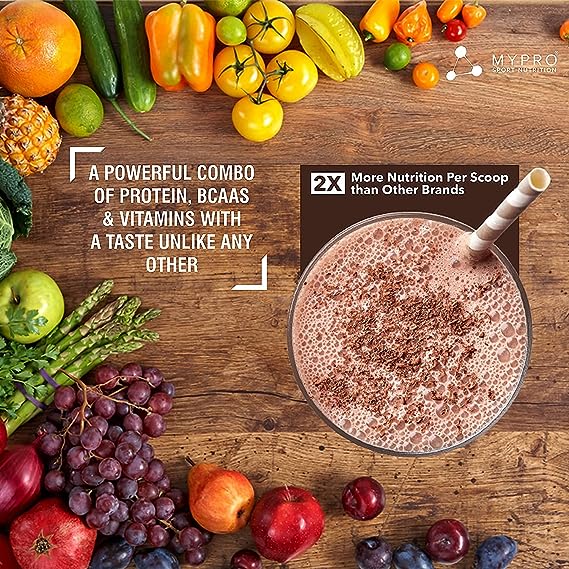Do you automatically think of meat when you consider diets and protein? Because we are often informed that chicken, fish, and lean steaks are the finest sources of protein, the majority of people naturally associate those foods with being healthy.
But is this actually true? Do we have any other options to encourage protein synthesis and boost organic muscle growth, or are those the only options we have? Positive news exists, that much is certain. Discover the Top Plant-Based Protein Powder.
These foods, along with grains, legumes, and seeds, can aid in the creation of protein. But if you’re a vegan, you can now use a range of organic plant-based protein powders to help you bulk up and get the same outcomes as the rest of your gym pals while also preserving your values. Brilliant!
What are proteins and their function?

In the world of bodybuilding, the phrase “protein synthesis” is commonly used, but it is essential if you want to achieve healthy muscle development, growth, and recuperation. Discover the Top Plant-Based Protein Powder.
Protein might be thought of as the building block of all “muscle.” Aside from acting as the body’s fuel source, amino acids found in protein are also necessary for the production of new proteins. Hence, if you want to experience more muscle growth and recovery, you must provide your body with enough protein.
The science…
The 20 amino acids found in dietary proteins are broken down into nine that are either essential or conditionally essential. This means that we must consume them or their precursors through the usage of foods or supplements in order for our bodies to function.

These amino acids are successfully used or recycled once inside of us to create our own protein. Now, the amount of dietary protein you need depends on your body weight. Discover the Top Plant-Based Protein Powder.
According to theory, you require 0.8kg of protein per kg of body weight (per day) if you engage in moderate physical activity. As an athlete, you will have a greater protein turnover rate, so you will need to consume roughly 1.4 to 2 kg of body weight.
Protein supplements are helpful in circumstances like these.
Forms of Protein Powders, Discover the Top Plant-Based Protein Powder.

Except for whey powder, the majority of protein powders are offered as isolate, hydrolysate, and concentrate. The Best Plant-Based Protein Powder may be found here.
- Isolate
Protein isolate is almost entirely made up of isolated amino acids and includes very little fat, fibre, or other components. Because it is absorbed considerably more slowly than other protein sources, isolate is frequently less allergenic than other protein sources and makes you feel fuller for a longer time. Discover the Top Plant-Based Protein Powder.
- Hydrolysate
Proteins that have been soaked in water are called protein hydrolysates. Due to the enzyme activity and cutting of the amino acid bonds, they have a tendency to be digested more quickly.
This protein is highly beneficial for aiding in muscle recovery after a strenuous workout since it can quicken the rate at which dietary amino acids are incorporated into your skeletal muscle protein. Discover the Top Plant-Based Protein Powder.
- Concentrate
Protein concentrations are, as their name implies, high in protein but less concentrated than those stated above. This is because they are subjected to less processing. However, this is not a negative thing. In fact, the fact that it is a more natural form of protein powder makes it the better option.

Plant-Based Protein Sources
It was once believed that you had to eat all nine of the essential amino acids at once. Due to the difficulty in blending the plants in a way that provided the required amount of protein, this posed serious problems for plant-based protein powders.
Thankfully, our understanding has improved. The Best Plant-Based Protein Powder may be found here.
Basically, as long as these critical amino acids are ingested over the course of a 24-hour period, you can get all the protein you may ever need from plant-based meals.
The good news for vegans is that they are no longer forced to consume protein powders derived from animal products like dairy, meat, eggs, you get the picture; vegan protein powders instead derive all of their protein from sources like nuts, seeds, grains, and legumes.
The best-tasting plant-based protein powders now contain grains, beans, and seeds. To accomplish this, they isolate the food’s protein components after almost all of the fat and carbohydrates have been taken out.
These aren’t your only options, though. There are many other great vegan protein powders on the market, some of which contain protein derived from soy, hemp, pea, rice, and even peanut (wonderful).
Before continuing, it’s important to note that soy is the only food that has all nine essential amino acids. This is important if you want to have the right amount of protein. Unfortunately, the remaining plant-based protein powders are lacking in at least one important amino acid. As a result, you will either need to combine numerous plant-based protein powders—for instance, pea and rice—or you will need to take the powder with meals.
For this, muesli and hemp protein powder work incredibly well together. Instead, think about putting pea protein powder in a smoothie that already has nut butter. Yummy! Discover the Top Plant-Based Protein Powder.
Whatever the case may be, you shouldn’t let this setback stop you from becoming a vegan. Protein synthesis can be easily optimised without ever requiring the use of proteins derived from animals. Discover the Top Plant-Based Protein Powder.
But if you’re still not convinced, consider these data: Discover the Top Plant-Based Protein Powder.
Compared to their animal-derived protein counterparts, organic plant-based protein powders are lower in fat, have less cholesterol, and contain fibre. In the end, vegan protein supplements essentially make you feel full while consuming fewer calories—perfect!

How do you decide which plant-based protein powder is right for you?
Which one you select will depend much on your needs and preferences: Discover the Top Plant-Based Protein Powder.
- Pea Protein
Considering the high protein content of yellow split peas, pea protein powder is often made from them. Every 28g of unflavored pea protein powder contains 100 calories, 21g of protein, and 100g of fibre. In fact, consuming 25g of pea protein powder twice day while working out can increase your biceps’ size by at least 20% over the course of a 12-week cycle, which is almost as much as whey protein. Additionally, it might make you feel fuller and help lower your blood pressure.
However, unlike other legumes, pea protein is low in the critical amino acid methionine and high in the BCAAs (leucine, isoleucine, and valine). All of these can help meet the energy requirements of your active muscles and encourage your body to produce more protein for them. Discover the Top Plant-Based Protein Powder.
Recommendation: Try mixing it with spirulina, chlorella, quinoa, pumpkin seeds, or chia seeds to make up for the lack of methionine in it.
- Hemp Protein
The seeds of the hemp plant are used to make hemp protein powders, which are purposefully derived from cannabis plants that have been bred to have very minimal THC (so you won’t get high). It is a good source of fibre, zinc, iron, magnesium, ALA (plant-based Omega-3 fat), essential fatty acids (EFAs), and fibre.
Mypro Sport Nutrition Plant Protein Powder Pea & Brown Rice Protein (23g protein,22 Vitamins & minerals,5g BCAA) Plant Based Vegan Protein Supplement For Men & Women (1000 Gm)
For every 28g of unflavored hemp protein powder you eat, you’ll get 12g of protein (108 calories). You’ll need to include quinoa and beans to your diet as a supplement because it is deficient in the essential amino acid lysine.
NOTE: Green beverages and smoothies go great with hemp protein because it is granular, light in texture, and slightly flavorful of grass. The Best Plant-Based Protein Powder may be found here.
- Pumpkin Seed Protein
Before they are turned into a powder, pumpkin seeds are a fantastic source of protein and healthy fats. The amount of calories is reduced as a result of the fat being eliminated during the powdering procedure.
For every 28g of unflavored powdered pumpkin seeds you eat, you’ll get 18g of protein and 103 calories. Discover the Top Plant-Based Protein Powder.
Compared to the others, it has fewer lysine and threonine, two crucial amino acids. It is still highly nutritious, has strong anti-inflammatory properties, and can lower levels of dangerous cholesterol. It also still contains significant amounts of antioxidants, magnesium, zinc, iron, and other minerals.
- Brown Rice Protein
Despite having a low lysine level, brown rice is a fantastic source of BCAAs, which are essential for muscular building. In fact, some studies suggest that brown rice protein powder may be just as efficient for developing muscle as whey protein when used for weight training. This might be as a result of the protein being a raw rice hydrolysate.
It is also simple to digest and safe for those with soy and dairy allergies as well as those with sensitive stomachs thanks to its minimal allergen profile. Discover the Top Plant-Based Protein Powder.
To make a complete protein, combine this powder with pea or hemp protein. This will make up for the lost lysine. You might also try including it in simple drinks like smoothies.
For every 28g of unflavored brown rice protein that you eat, you’ll get 22g of protein and 107 calories. Discover the Top Plant-Based Protein Powder.
After weight training, 48g of this powder, taken three times per week, can increase bicep muscle thickness by up to 12% over the course of an 8-week cycle.
One problem with this powder, though, is the potential for contamination with the heavy element arsenic. As a result, always utilise brown rice protein powders that have passed their own internal arsenic testing.

- Soy Protein
The only one of them, soy protein, is a complete protein and is also rich in plant compounds that can help lower blood cholesterol levels and BCAAS, which are essential for the growth and development of muscles.

Just 28g of soy protein isolate powder provides 22g of protein and 95 calories.
Due to the prevalence of genetically modified soy in the US and the dearth of brands employing non-GM soy, this type of protein powder has declined in popularity in recent years. This has gotten worse as a result of concerns over the potential health risks and allergies it may cause. Use this powder in combination with other substances rather than by itself.
- Sunflower Seed Protein
One of the more recent vegan protein powder choices on the market, it can provide you with a significant amount of BCAAs to aid in muscle growth and repair. Like many of the others, it is lysine-deficient, but it can be combined with quinoa to create a complete protein.
13g of protein and 91 calories are contained in only a 28g serving.
- Sacha Inchi Protein
Due to the fact that it is manufactured from sacha inchi seeds, this powder is one of the more expensive ones. Like many of the other items on the list above, it is deficient in the essential amino acid lysine, although this can be easily remedied by combining it with other protein powders.
In fact, in terms of efficiency, soy protein powder has been compared to it. This is due to the fact that it has a high arginine content, which your body needs to produce nitric oxide, which reduces blood pressure, facilitates artery expansion, and enhances blood flow. The ALA omega-3 fat present in this plant-based protein can also help to promote heart health.
A 28g serving contains 17g of protein and 120 calories.
- Chia Protein
Chia seeds are frequently used in smoothies, oats, and baked products because of their high amino acid content (although they are deficient in lysine) and potential to improve digestion. A 28g portion of the powdered version contains 10g of protein, 50 calories, and up to 50% more protein digestibility than when it is taken as a seed.
Additionally, this protein offers 8 grammes of fibre per serving and is rich in vitamins and minerals like chromium and biotin.
Plant Protein Blends
Apart from soy, the majority of these plant-based protein powders function better when mixed, in case you hadn’t guessed. Maybe it explains why some are already integrated.
By providing them as a blend, you can instantly be certain that you are getting the optimal levels of each of the important amino acids in a single package. They’ve already taken care of the servings, so you don’t have to bother about that.
Common combos include:
- Together, rice protein and pea protein, which are both deficient in lysine and methionine, make up for these inadequacies.
- Quinoa protein is frequently combined with other plant proteins due to the fact that it contains all 9 necessary amino acids.
- There are certain plant proteins that have been powdered and mixed with flavours, sprouted or fermented plant proteins, or enzymes. You may digest food more easily with the help of enzymes, and fermentation and sprouting can increase the amount of beneficial plant compounds, vitamins, and minerals that are available to your body. They can aid in the breakdown of antinutrients that may prevent the absorption of minerals, amino acids, and other nutrients.

Best Tasting Plant-Based Protein Powder Smoothie
It’s important to understand that not everyone like the flavour of plant-based protein powders. Okay, they can be very disgusting.
Spices, cocoa powder, citrus or orange peel, or extracts like vanilla or almond are necessary because they can increase flavour.
The hemp protein, peanut butter, chia seeds, and almond milk in this delicious plant-based protein smoothie will ensure that you get all the essential amino acids you need in a single serving.
To make it all you need is:
1½ cups of unsweetened almond milk
1 banana
1½ tbsp. of Chia seeds
2 tbsp peanut butter
3 tbsp Hemp protein powder
½ tsp Maca powder
1½ tbsp. Cocoa powder






